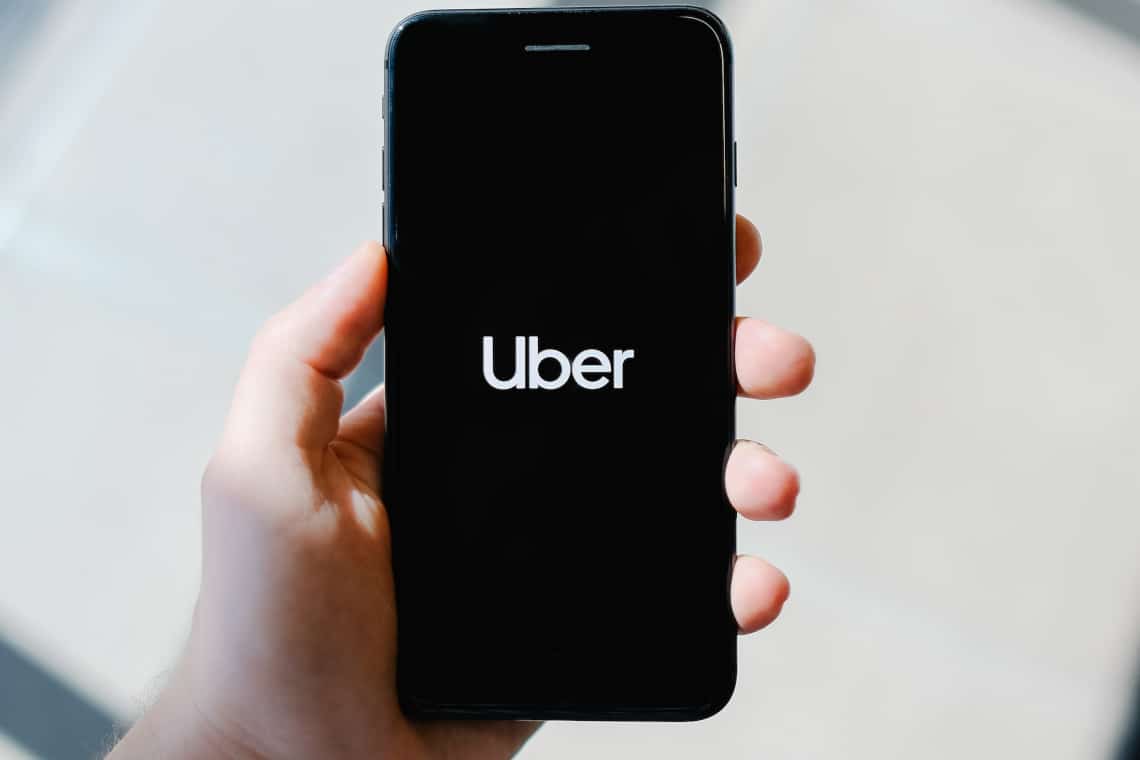News has been circulating in recent days that Uber CEO Dara Khosrowshahi has reportedly said that it will soon be possible to pay for services offered by the company using crypto.
Khosrowshahi actually said something similar during an interview with Bloomberg.
However, it was an interview given in February last year, in which he said that Uber users will probably be able to pay for rides with cryptocurrencies in the future, but also that the company is following Tesla’s example, i.e., it is waiting for changes that will reduce transaction fees and pollutant emissions.
In that interview he stated that Uber will definitely accept crypto payments sooner or later, but not in the short term.
Summary
The problem of fees
To tell the truth, the problem of very high fees for individual transactions seems to have already been solved.
For one thing, the fees are not borne by the payer, as when using fiat currency payment networks such as Visa or Mastercard, but borne by the paying customer.
So even if high, they would not weigh on the company’s coffers. Indeed, they would reduce costs for merchants such as Uber.
However in case they were high, it is hard to imagine that users would want to use them to pay for purchases of goods or services, since it would then cost them more.
However, the solution to this problem is already there, and it is layer 2s.
Truth be told, as far as for example USDT payments are concerned, which are the most popular ones, it is possible to use the Tron network, instead of for example that of Ethereum, in order to have very fast and cheap transactions.
Whereas for those who would like to pay in Bitcoin, the solution would be the use of Lightning Network, which allows almost immediate transactions at negligible cost.
For those who would like to pay with tokens on Ethereum there are layer-2s such as Arbitrum, Polygon or Optimism, while for those who would like to pay with tokens on BSC Chain there should not be big problems anyway, since this network allows quite fast and cheap transactions.
From this point of view, only those who want to pay Bitcoin, Ethereum or ERC-20 tokens with on-chain transactions might have some problems.
The problem of pollution
To be fair, the pollution problem is also partially solved.
To begin with, Ethereum has switched to Proof-of-Stake, abandoning Proof-of-Work, which consumes a lot of energy.
Put another way, to date most of the crypto energy consumption is borne by Bitcoin mining, followed by Dogecoin and Litecoin.
Hence using Ethereum, BSC Chain, Tron, or a layer-2 such as Arbitrum, Polygon, or Optimism, the average energy consumption per transaction would be almost irrelevant even now.
As for Bitcoin, the energy consumption of transactions on LN is irrelevant, perhaps even more so than that of transactions on other layer-2s.
The real problem still only concerns on-chain transactions in Bitcoin, but even here it is worth spending a few more words.
Certainly the overall energy consumption of Bitcoin mining is very high.
However, not all energy produced pollutes in the same way.
Right now the country with the highest energy consumption for Bitcoin mining in the world is the US, where apparently most of the energy consumed for this purpose is produced from renewable sources, and with virtually no CO2 emissions.
Thus Bitcoin mining actually pollutes more than that. The problem lies in the fact that in other countries, primarily China, Bitcoin is mined using non-renewable and highly polluting energy, such as that generated by burning coal.
At this time, it is not known exactly how much pollution Bitcoin mining actually causes, and estimates on this are so imprecise that they must be considered unreliable.
Breaking news: Will Uber integrate crypto?
Uber is one of the most revolutionary companies to emerge in the last abundant decade.
A company of such revolutionary scale is very strange that it would decide to stay out of the cryptocurrency revolution.
It is possible that the two issues raised by Khosrowshahi are not really the main reasons behind the refusal to enable crypto payments.
Instead, it is possible that, trivially, it is a matter of business costs.
In fact, to be fair, there are still very few people who routinely pay in crypto, and given that a company such as Uber may be forced to have to immediately convert any collected crypto into fiat, offering such a service could have some significant costs.
If offering it did not yield significant benefits, the game would not be worth the candle.
Currently, the majority of actual crypto payments for the purchase of goods or services are made in stablecoins, such as USDT, and not everyone has stablecoin tokens on Tron, BSC Chain, or Ethereum layer-2.
Therefore those who have ERC-20 stablecoin tokens may not want to pay small amounts below say $100 in cryptocurrency.
Uber’s attitude therefore seems justified, but as soon as cheap stablecoin payments using cheap networks or layer-2s become very widespread this discussion could change completely.




